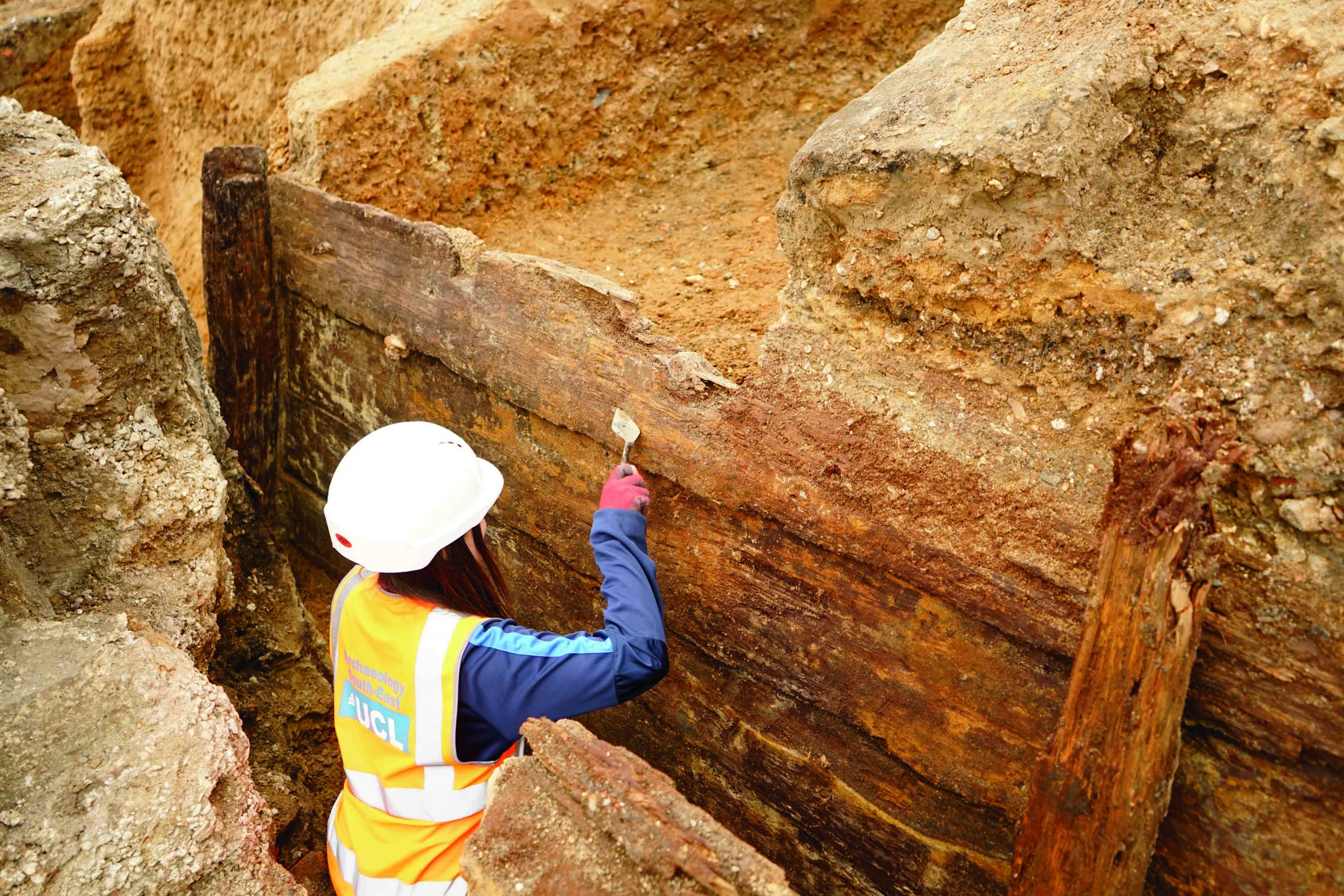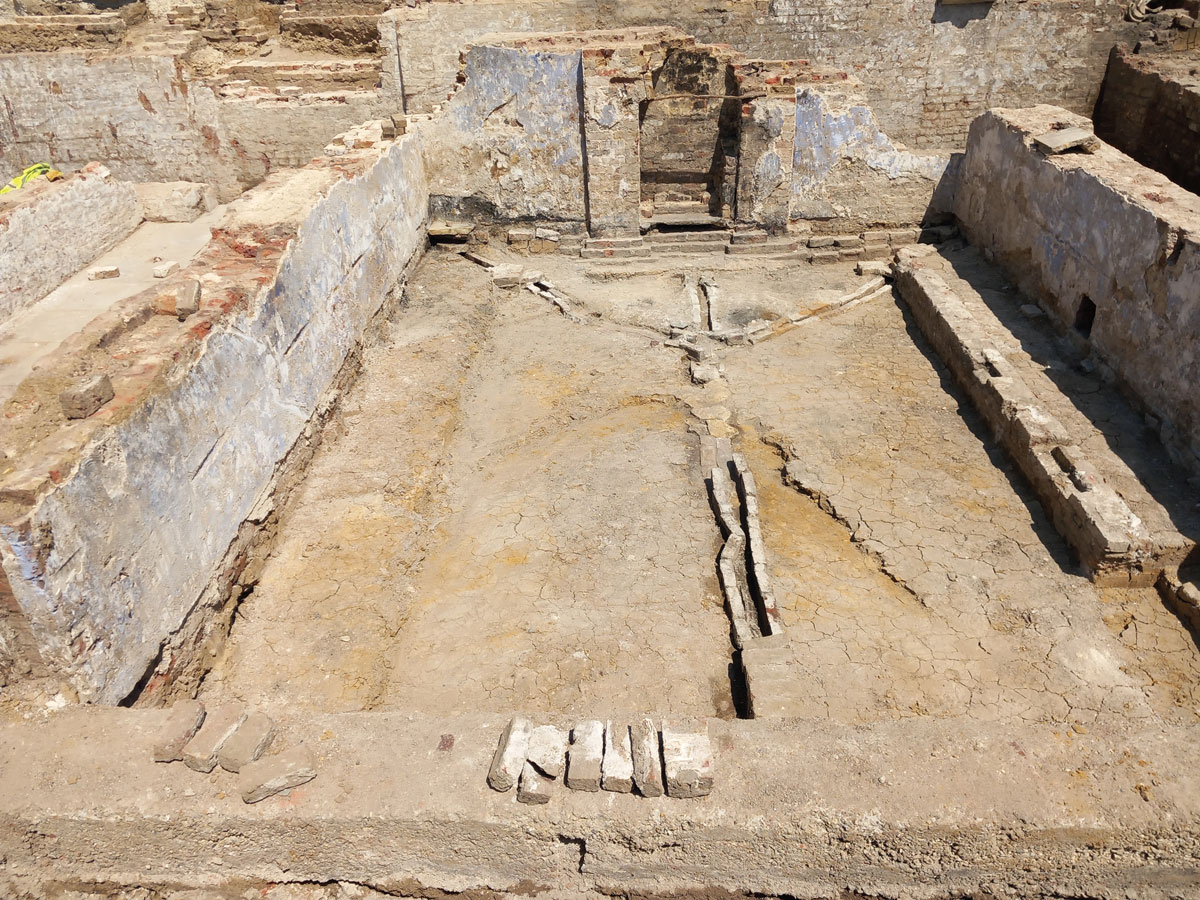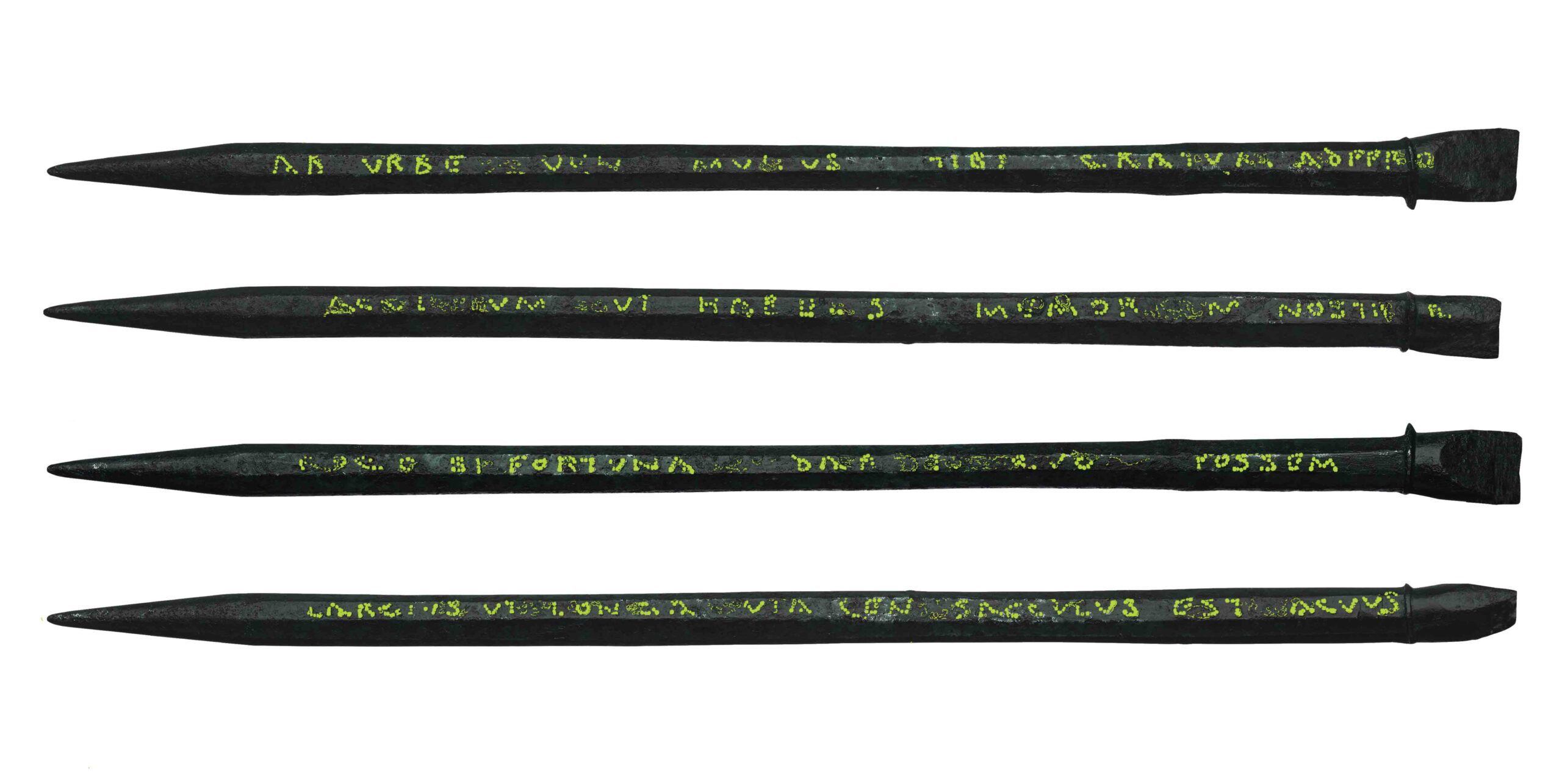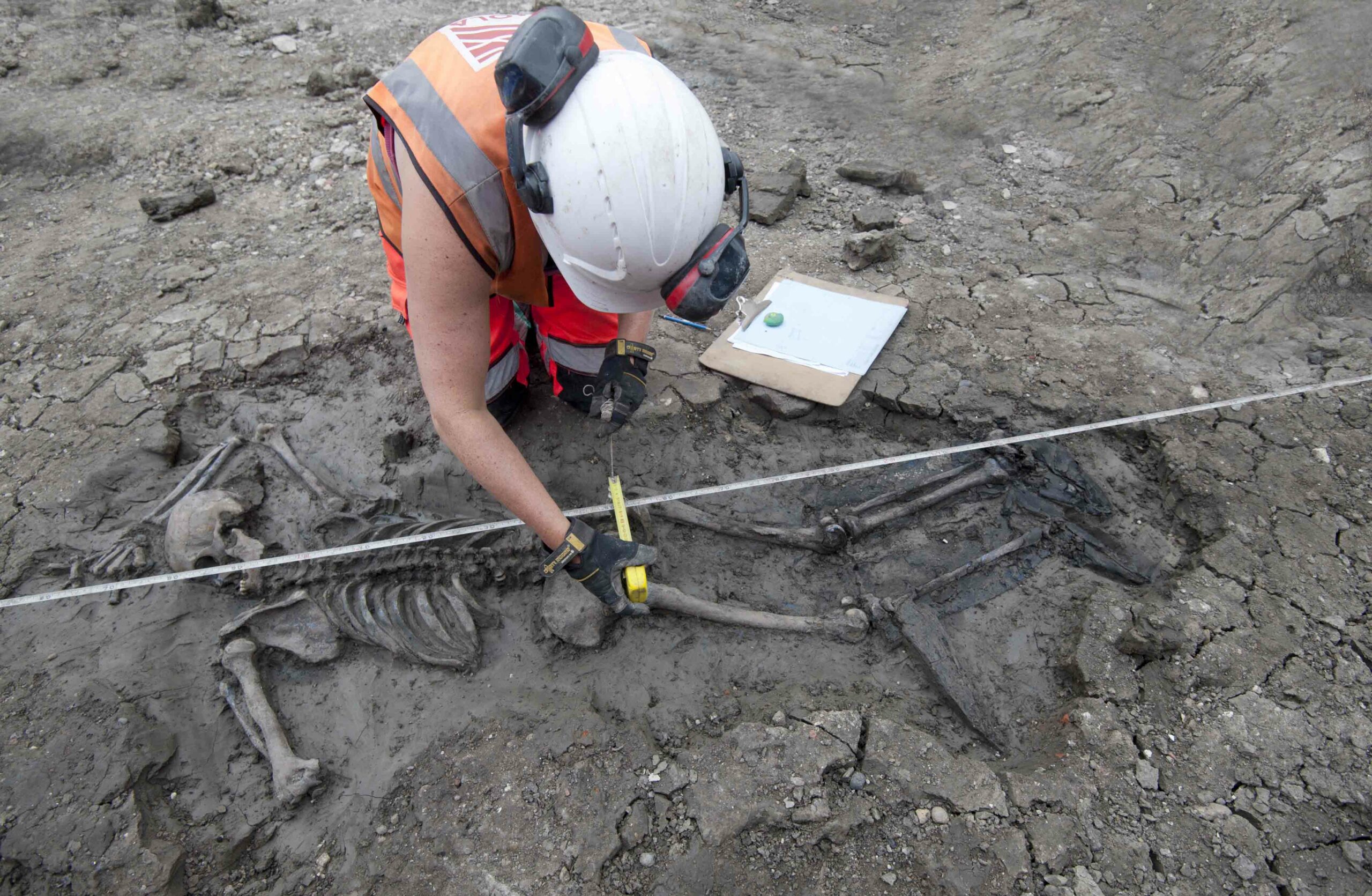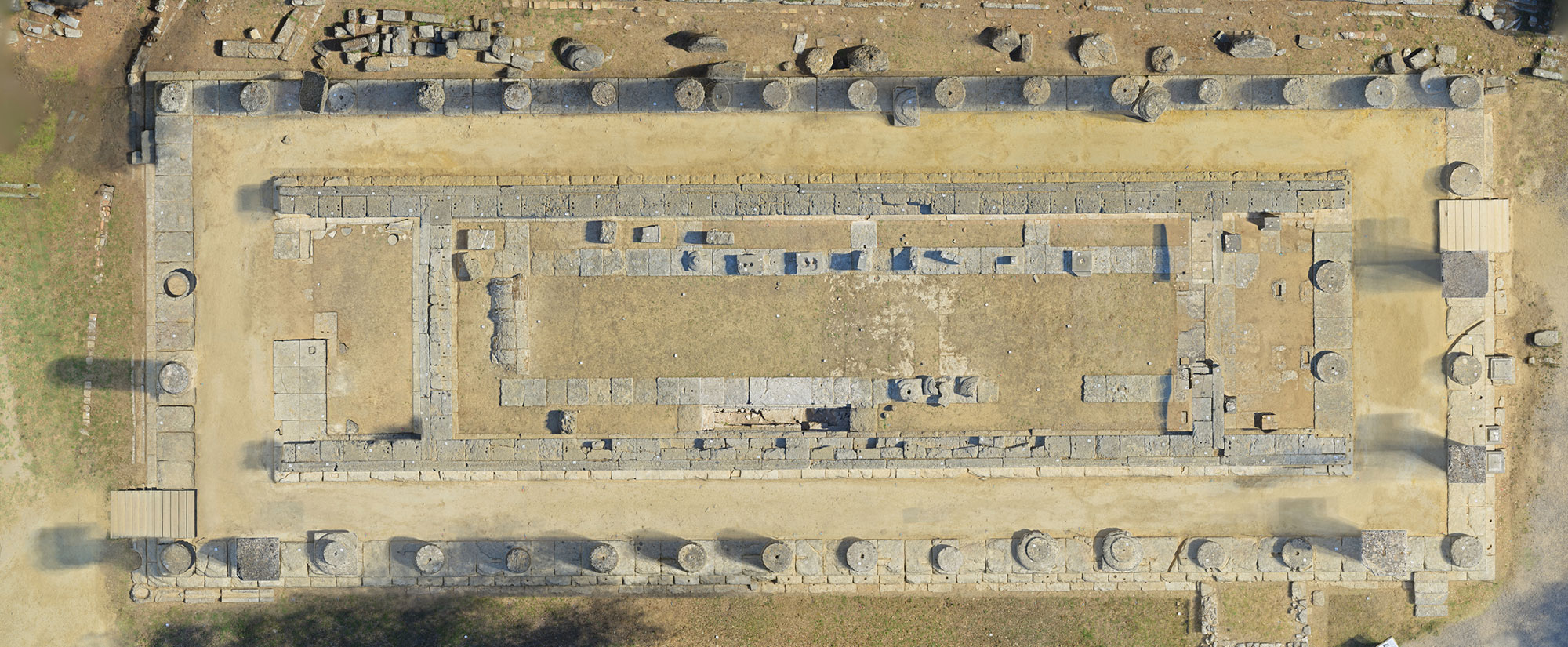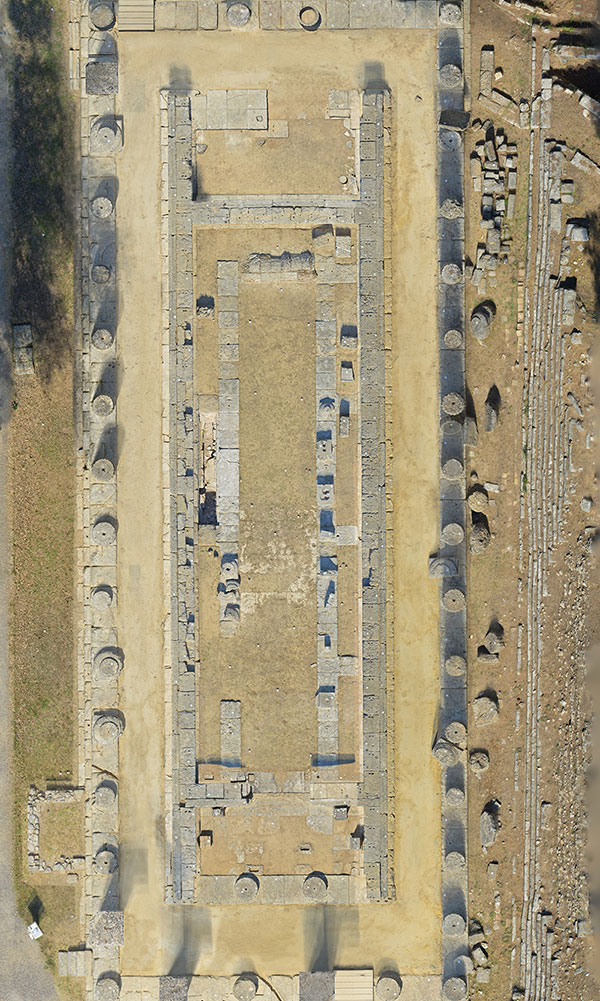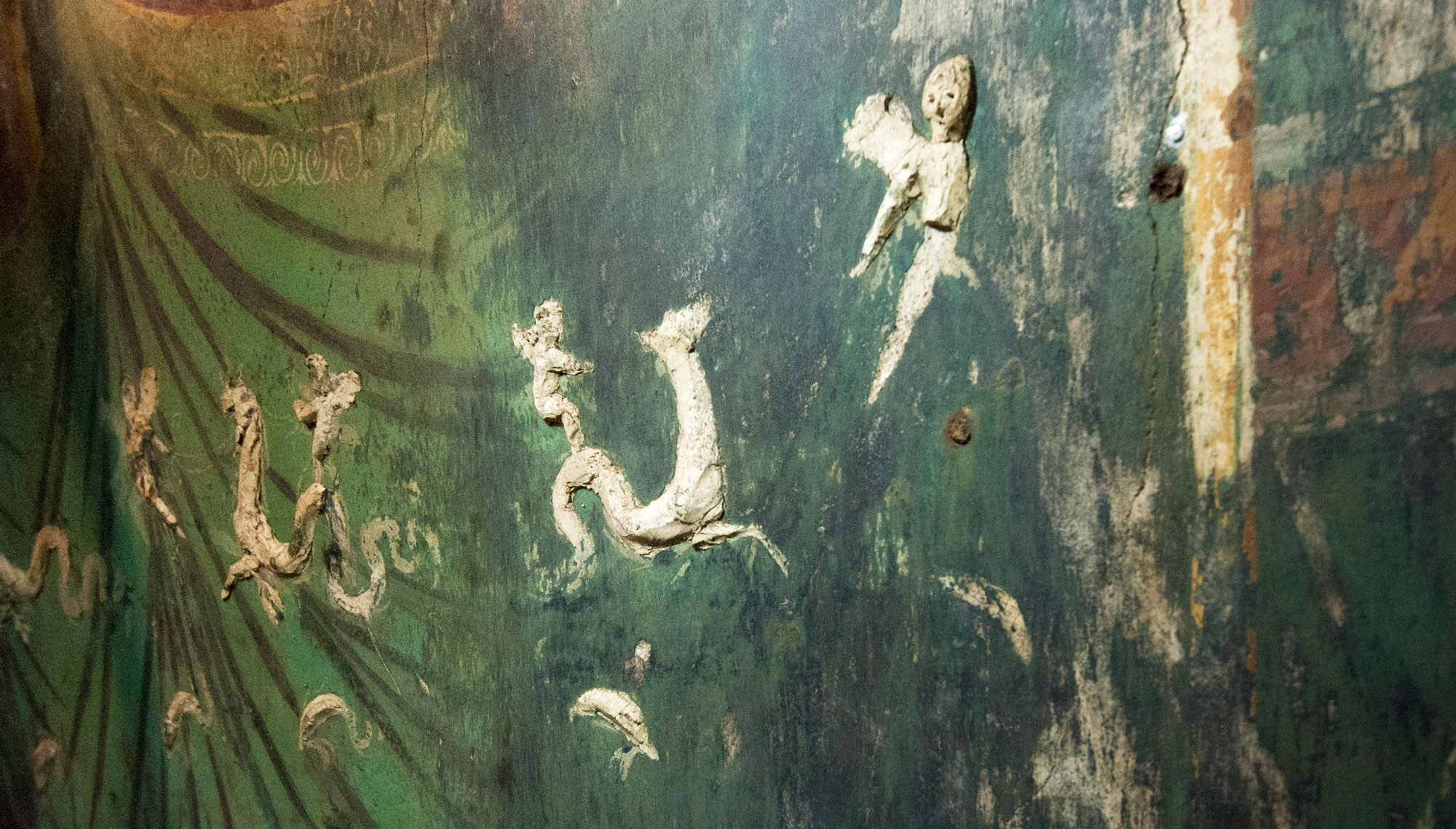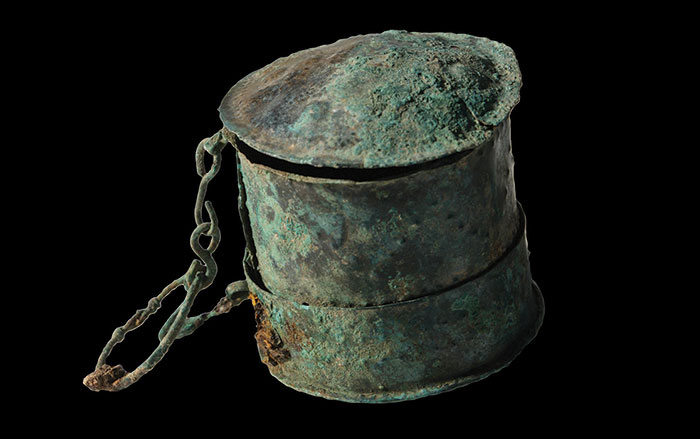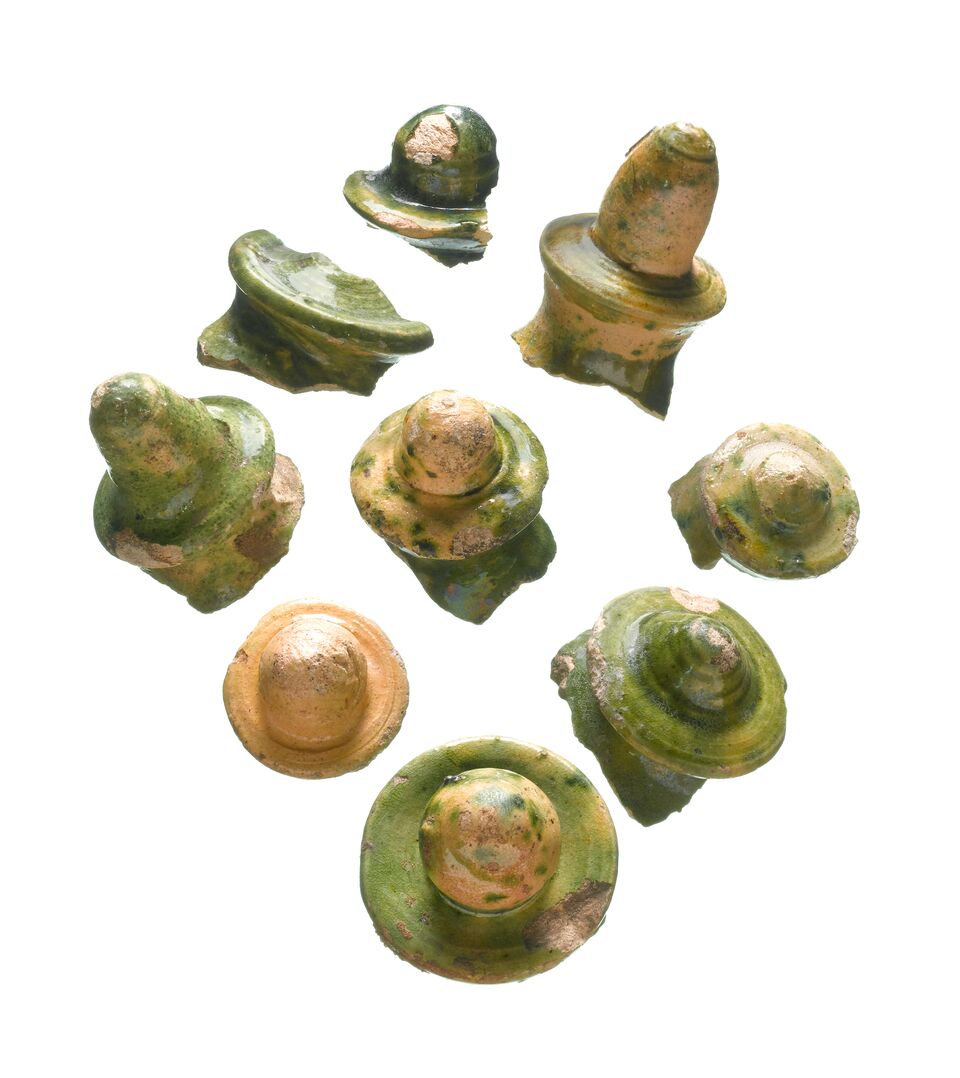
LONDON, ENGLAND—The Guardian reports that an excavation at the Curtain Theater by researchers from the Museum of London Archaeology has uncovered a rectangular stage some 45 feet long that was built over a passageway with doors at either end. It had been thought that the early Elizabethan theater had a polygonal structure, but the excavation has revealed that the building was rectangular in shape, and that it had timber galleries and a courtyard of compacted gravel built for theater goers. “The question is now whether Shakespeare and other playwrights were writing plays specifically for this kind of stage—which would have required a completely different style of interaction compared to a thrust stage with the audience on three sides,” said senior archaeologist Heather Knight. The excavation also revealed that the theater was purpose-built behind a structure that faced Curtain Road. Fragments of green-glazed money boxes that held entrance fees have been found. These boxes were smashed in a “box office,” where the money was counted. Glass beads and pins that may have come from the actors’ costumes were recovered, along with drinking vessels and clay pipes. For more, go to “Richard III’s Last Act.”


